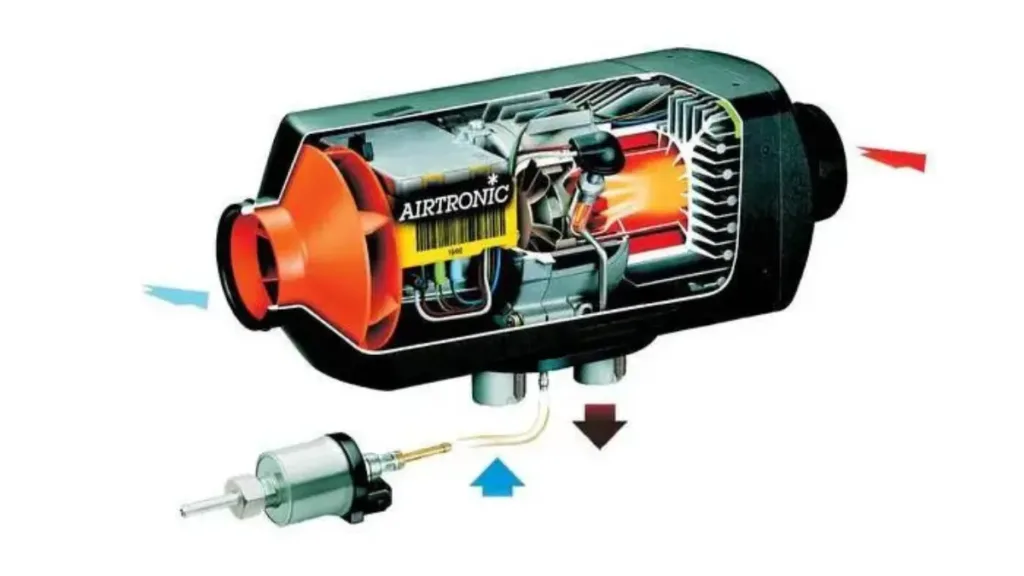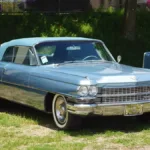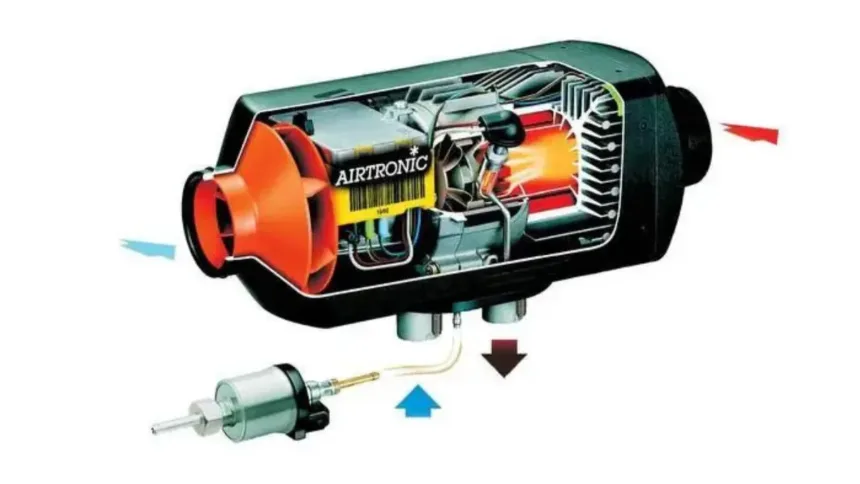Well, when the matter is keeping the engine of your automobile warm, especially in colder climates, the choice between the heating system types becomes really big. Is it the coolant heater, or maybe an engine air heater? Of course, everyone has its pros and cons; different conditions and types of engines demand either one of the systems. Let’s dive deeper into the details of both and see which one will be more appropriate for you.
What Is an Engine Air Heater?

The engine air heater; by name, heats air entering into an engine. Technically well, this system is premised on warming up the intake air to assist combustion, especially for diesel engines, which start hard in cold weather. Diesel engines depend more on high temperatures of air to ignite the fuel, and a cold engine translates to cold air, making it difficult to ignite.
An engine air heater works through heating induction air, as facilitated by the use of electrical elements. When the air is warm enough, it enhances making the engine start better to reduce wear and tear.
What Is a Coolant Heater?

A coolant heater, however, works a little differently. It is operating to warm up the coolant fluid used by the engine, rather than heating air. This liquid circulates through the entire block of the motor as well as in the other modules to warm up temperatures before a started engine.
Coolant heaters are used in most diesel and gasoline engines, warming up an entire block of the engine; it does not warm only the air that is about to be let into the combustion chamber. The result is a smoother start with faster cabin heating.
Differences Between Engine Air Heater and Coolant Heater
Now that we understand the basics, let’s break down the key differences between these two systems:
- Function: The engine air heater only warms the intake air, while a coolant heater warms the entire engine block.
- Applications: Air heaters are generally used in diesel engines, whereas coolant heaters are more versatile and can be found in both diesel and gasoline engines.
- Warm-up time: Coolant heaters take longer to heat the entire engine, while air heaters can quickly warm the air for faster engine starts.
Advantages of Engine Air Heaters
So, why would you choose an engine air heater? Here are some benefits:
- Faster Warm-Up Times: Since engine air heaters only need to warm up the air, they are generally faster, making them ideal if you’re in a hurry on a frosty morning.
- Ideal for Cold Climates: In very cold conditions, especially for diesel engines, engine air heaters can provide the necessary boost to get your vehicle started efficiently.
Advantages of Coolant Heaters
Coolant heaters, though slower, come with their own set of advantages:
- Consistent Temperature Control: By warming the entire engine, a coolant heater ensures that the temperature stays consistent, which reduces engine wear and improves performance.
- Improved Fuel Efficiency: When your engine is preheated with a coolant heater, it runs more efficiently from the get-go, using less fuel and reducing emissions.
Energy Efficiency of Engine Air Heaters
In that regard, engine air heaters are very energy efficient because they will only heat the intake air. Therefore, it is sure to consume lesser amounts of energy compared to heating the entire engine. Ironically, this makes them preferred in colder climates, where speedy and efficient heating is required.
Energy Efficiency of Coolant Heaters
Coolant heaters tend to consume very much energy as they warm the whole engine. That means in as much as it consumes much energy initially, in that it gets your engine warm faster, it saves one energy once your engine is warmed up. That simply puts it that coolants are best for those wanting to balance up-front energy consumption with long-term savings.
Which Heater Is Best for Diesel Engines?
Most of the diesel engines prefer air heaters since their combustion feels pretty great on hot air. This, therefore, makes warm-up time fast and you are no longer left outside in the freezer while waiting for your engine to get ready. Besides that, air heaters reduce the damage that comes as a result of cold starts associated with diesel engines.
Which Heater Is Best for Gasoline Engines?
Since gasoline engines do not need such a high air temperature for combustion, the coolant heater may be considered in this light. Preheating the engine block up to a certain point before igniting a gasoline engine can help extend the useful life and efficiency of all. Thus, the coolant heaters are more linear and gentle towards warming up in gasoline engines.
Durability and Maintenance
Both are moderately robust, but the requirements for maintenance differ slightly. Air heaters are less demanding to maintain since they have no coolant heating, so it does not have so many moving parts. Coolant heaters have quite a lot in them related to the engine’s cooling system; thus, they may demand frequent checks and leakages among many contaminants that run against their proper performance.
Cost Comparison
Since these are relatively simple in construction, upfront costs for engine air heaters are typically lower. Coolant heaters are generally more complex and typically costlier initially, but there are long-term savings through better fuel efficiency and reduced wear of the engine.
Environmental Impact
From an environmental standpoint, coolant heaters generally are seen to be more environmentally friendly. By preheating your engine using a coolant heater, this makes it come up to optimal working temperatures faster, thereby reducing fuel consumption and accordingly further means of emissions. On the flip side, though energy efficient in nature, the engine air heaters lack the overall benefit of reduced emissions.
User Preferences and Popularity
In reference to user preference, coolant heaters tend to be preferred more, especially for everyday drivers on moderate climates. Diesel drivers, particularly in colder areas, tend to prefer engine air heaters due to faster warm-up times. Really dependent on engine types and local weather conditions.
Conclusion
So, which heater is right for you? It ultimately boils down to the type of your vehicle, climate, and personal preferences. For instance, in colder climates, a really quick engine air heater is ideal with diesel engines. In contrast, coolant heaters are an effective choice for both diesel and gasoline engines. For one thing, they offer consistent temperature control; apart from that, fuel efficiency improves, while emissions decrease.
FAQs
- Can I use both an engine air heater and a coolant heater together?
Yes, in some cases, using both can provide optimal results, especially in extremely cold climates. - Which heater is more energy-efficient?
Engine air heaters are more energy-efficient for short-term use, while coolant heaters save energy over the long run. - Do coolant heaters reduce engine wear?
Yes, preheating your engine with a coolant heater can reduce wear and tear by ensuring a smoother start. - Are engine air heaters safe for gasoline engines?
They are typically used in diesel engines. Gasoline engines usually don’t require such systems. - Can I install a heater myself?
While it’s possible, it’s always recommended to have a professional install these systems to avoid any complications.
Also Read : All Wheel Drive vs Front Wheel Drive: Which Is Best?







